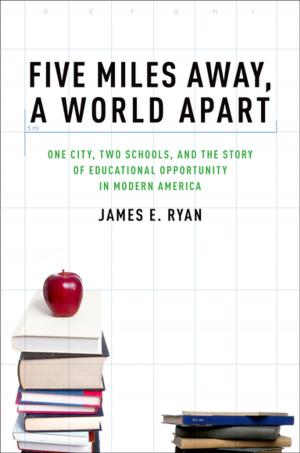The Luxury Economy and Intellectual Property
Critical Reflections
Nonfiction, Reference & Language, Law, Intellectual Property| Author: | ISBN: | 9780199335725 | |
| Publisher: | Oxford University Press | Publication: | August 26, 2015 |
| Imprint: | Oxford University Press | Language: | English |
| Author: | |
| ISBN: | 9780199335725 |
| Publisher: | Oxford University Press |
| Publication: | August 26, 2015 |
| Imprint: | Oxford University Press |
| Language: | English |
Intellectual property law plays a pivotal role in ensuring that luxury goods companies can recoup their investments in the creation and dissemination of their copyrighted works, trademarked logos, and patented designs. In 2011, global sales for luxury goods reached about $250 billion, and consumers in East and Southeast Asia accounted for more than 50 percent of that figure. The rapid expansion of the market has prompted some retailers to wield intellectual property against the influx of imitators and counterfeiters. The Luxury Economy and Intellectual Property comprehensively explores the rise of the luxury goods economy and the growing role of intellectual property in creating, sustaining, and regulating this economy. Leading scholars across various disciplines critically consider the industry, its foundational intellectual property laws, and the public interest and social concerns arising from the intersection of economics and law. Topics covered include defining the concept of luxury, the social life of luxury goods, concerns about distributive justice in a world flooded by luxury goods and knockoffs, the globalization of luxury goods, and the economic, social, and political ramifications of the meteoric rise of the Asian luxury goods market.
Intellectual property law plays a pivotal role in ensuring that luxury goods companies can recoup their investments in the creation and dissemination of their copyrighted works, trademarked logos, and patented designs. In 2011, global sales for luxury goods reached about $250 billion, and consumers in East and Southeast Asia accounted for more than 50 percent of that figure. The rapid expansion of the market has prompted some retailers to wield intellectual property against the influx of imitators and counterfeiters. The Luxury Economy and Intellectual Property comprehensively explores the rise of the luxury goods economy and the growing role of intellectual property in creating, sustaining, and regulating this economy. Leading scholars across various disciplines critically consider the industry, its foundational intellectual property laws, and the public interest and social concerns arising from the intersection of economics and law. Topics covered include defining the concept of luxury, the social life of luxury goods, concerns about distributive justice in a world flooded by luxury goods and knockoffs, the globalization of luxury goods, and the economic, social, and political ramifications of the meteoric rise of the Asian luxury goods market.















